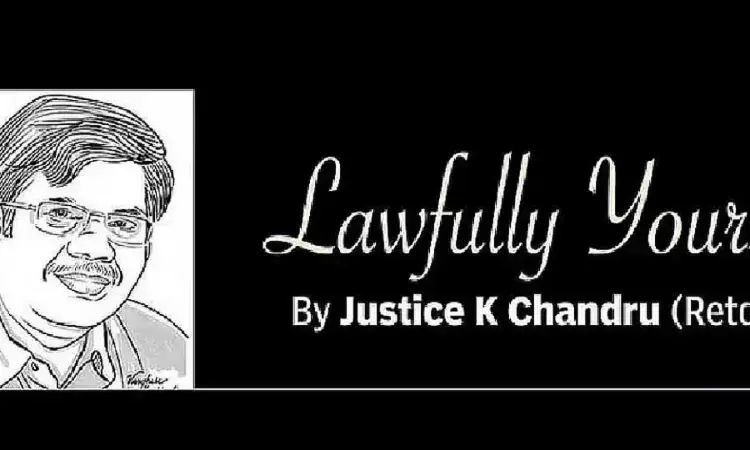Legally Yours: By Retd Justice K Chandru
Your legal questions answered by Justice K Chandru, former Judge of the Madras High Court Do you have a question? Email us atcitizen.dtnext@dt.co.in

Justice K Chandru
CHENNAI: Present slogan of Common Civil Code a bogey to terrorise minority communities
How do you see the central government’s efforts in pushing for a Uniform Civil Code? When the framers of the Constitution thought it wise to choose different ones taking into account the diversity of the nation, does such a move go against the tenets with which the nation was built? If UCC goes against the ethos of the Indian Constitution, can we term such an attempt beyond the powers of the legislative?
— M Saravanan, Medavakkam, Chennai
Article 44 of the Constitution allows the State to make a Uniform Civil Code. But in the last 75 years, no government was able to make one. It’s now become fashionable to talk about a ‘common’ civil code. It is easier said than done. The Constitution has given the right to religion and freedom of conscience. There is a vast difference between ‘uniform’ and ‘common’. You can attempt to bring as far as possible uniformity of laws in the matter of marriages, right of succession etc. But the present slogan of the common civil code is a bogey to terrorise minorities. Whether even those belonging to the majority religion will accept it is a doubtful question. Dr Ambedkar’s attempt to bring a common Hindu code was defeated by Congress members in the early fifties.
Free speech under Article 19(1) subject to ‘reasonable restrictions’ under Article 19(2)
I am an assistant professor working at a State-run university. I was pulled up by the varsity administration recently for delivering a talk without written permission. A sequence of events forces me to conclude that they want us to function more like clerical staff. As an academician, I believe I have the right to share my expertise in my domain with stakeholders. My predecessors have strongly asserted their independence, even when sharing a critical view of the establishment. However, I am confused about whether I have legal protection to share my expertise among the public, without waiting for the nod of the university’s administration. It would be great if you could throw more light on the issue.
— R Manivasagam, Chennai
As a university teacher, you have the full freedom to speak wherever you want. At the same time, your academic freedom is restricted as to the contents of your speech. Article 19(1) of the Constitution gives you liberty of speech but it is subject to “reasonable restrictions” found under Article 19(2). So you must be careful in what you are speaking.



